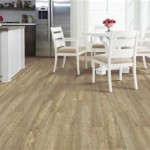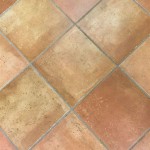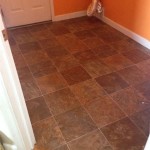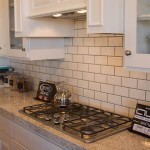Can You Tile Over Adhesive
Tiling over adhesive is a common practice in home renovation projects. While it can be a convenient and economical way to update your space, it's important to understand the potential risks and challenges involved. In this article, we will delve into the essential aspects of tiling over adhesive, including its feasibility, preparation, risks, and alternatives.
Feasibility of Tiling Over Adhesive
The feasibility of tiling over adhesive depends on several factors, including the type of adhesive, the condition of the adhesive, and the type of tile being installed. Generally, it is possible to tile over most solvent-based and water-based adhesives, provided that they are firmly bonded to the substrate and free from any major defects.
However, it is not recommended to tile over epoxy-based adhesives, as they create a non-porous surface that can prevent the tile adhesive from properly bonding. Additionally, if the adhesive is loose, peeling, or crumbling, it must be removed before tiling can proceed.
Preparation for Tiling Over Adhesive
To ensure a successful installation, it is crucial to properly prepare the adhesive surface before tiling. This involves cleaning the surface thoroughly to remove any dust, dirt, or debris. Next, assess the condition of the adhesive and make any necessary repairs. If there are any loose or damaged areas, they should be scraped away and filled with a suitable adhesive patch.
Once the adhesive surface is clean and sound, it may be necessary to apply a primer or bonding agent to enhance the adhesion between the tile adhesive and the adhesive surface. This step is particularly important if the adhesive is slick or non-porous.
Risks Associated with Tiling Over Adhesive
While tiling over adhesive can be a viable solution in some cases, there are certain risks to consider. One of the primary concerns is that the tile adhesive may not bond properly to the adhesive surface, leading to loose or cracked tiles. This risk is especially high if the adhesive is not properly prepared or if the tile adhesive is incompatible with the adhesive type.
Additionally, the adhesive layer can create an uneven surface, which can make it difficult to achieve a level and consistent tile installation. Furthermore, if the adhesive is not moisture-resistant, it can absorb moisture and cause the tile adhesive to fail.
Alternatives to Tiling Over Adhesive
In some cases, tiling over adhesive may not be the best option. If the adhesive is loose, damaged, or epoxy-based, it is generally recommended to remove the adhesive and prepare the substrate before tiling. This may involve scraping, grinding, or using a chemical stripper to remove the adhesive.
Another alternative is to install a backer board or cement board over the adhesive surface. This creates a stable and level surface for tiling, and it can also help to prevent moisture from penetrating the adhesive layer.
Conclusion
Tiling over adhesive can be a convenient and cost-effective solution in certain situations. However, it is important to assess the feasibility and risks involved before proceeding. By properly preparing the adhesive surface, using compatible adhesives, and considering potential risks, you can increase the chances of a successful tile installation.
If you are unsure about the suitability of tiling over adhesive or if you encounter any difficulties during the installation process, it is always advisable to consult with a qualified tile contractor for guidance and support.

Tiling Over Existing Tiles And Painted Surfaces

Installing Tile Over Pros And Cons Wizards

How To Skim Coat Over Tile Adhesive

How To Install Tiles Using Tile Adhesive Expert Step By Guide

How To Tile Over Linoleum Floors Correctly

What Type Of Thinset To Use When Tiling Over Tiles Tile Pro Depot

How To Tile Over Existing Brepurposed

What Is The Correct Adhesive For Porcelain Tile

Blog Expert Advice How To Tile Onto Wood Plywood Or Chipboard

Tiling Onto Wood Training Blog Bal Adhesives
Related Posts








